
Industrial factories are a critical foundation in production activities, not only providing operational space but also determining the effectiveness of investment and the long-term growth of businesses. Along with technological advancements and the growing demand for multi-sector manufacturing, factory types have become increasingly diverse in design, structure, and function.
Among them, four common types of industrial factories are now widely chosen by businesses for their suitability to production scale, industry specifics, and cost optimization. Understanding the characteristics of each type helps businesses make accurate choices while maximizing the advantages of construction design in practice.
An industrial factory is a large-scale construction project designed to serve manufacturing, processing, storage, or distribution activities. Its outstanding features include spacious interiors, durable structures, and the ability to meet various requirements across industries.
Structurally, factories are often built with prefabricated steel frames or reinforced concrete, combined with roofing systems, walls, load-bearing floors, and accompanying technical facilities. Additionally, during design and construction, factors such as ventilation, lighting, fire protection, and electromechanical systems are carefully calculated to ensure safety and operational efficiency.
Industrial factories are not only production sites but also strategic infrastructure assets that enhance business competitiveness. Choosing the right factory design solution from the outset helps optimize investment costs, improve production efficiency, and establish a foundation for sustainable development.
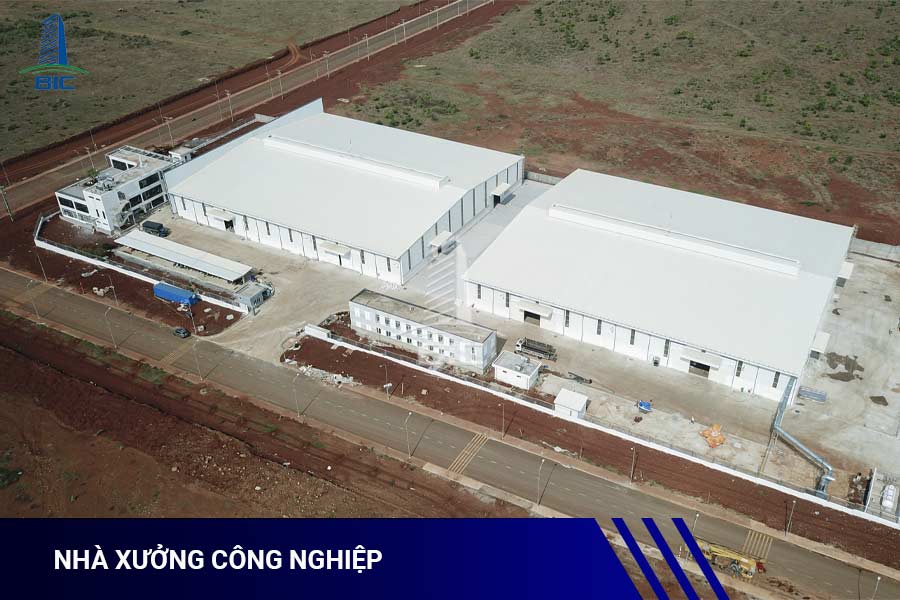
Reinforced concrete factories, this type uses reinforced concrete for most components such as foundations, columns, beams, and floors. Its greatest advantages are durability, high load-bearing capacity, and long service life. It is suitable for heavy industries like steel, cement, and construction materials, where strong structures and safety for large-scale equipment are required.
Steel Structure Factories (Pre-Engineered Buildings), built with steel frames as the main load-bearing structure, this factory type offers quick construction, flexible expansion, and easy design customization. Foundations are still made of reinforced concrete for stability, while steel frames provide layout flexibility. This option is popular in light industries such as textiles, footwear, and furniture production.
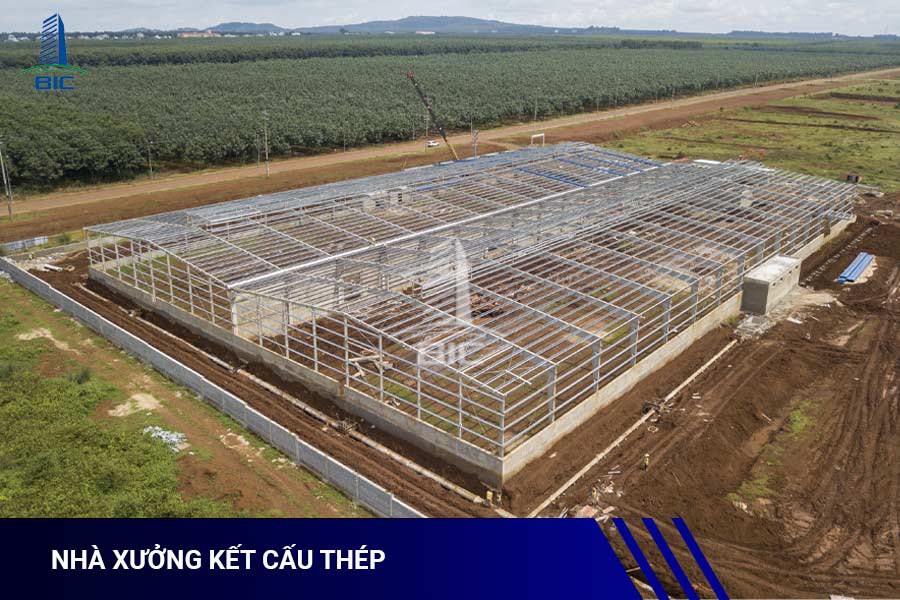
Factories Without Office Space designed to dedicate the entire area to production, this type is suitable for businesses specializing in processing, assembly, or consumer goods manufacturing. The layout is optimized for production lines and storage, maximizing usable space.
Factories With Integrated Office Space, this model combines production areas with administrative offices within the same building. Its main advantages include cost savings, improved interaction between production and management teams, and a more centralized, flexible working environment. Many small and medium enterprises choose this type to optimize management and operations.
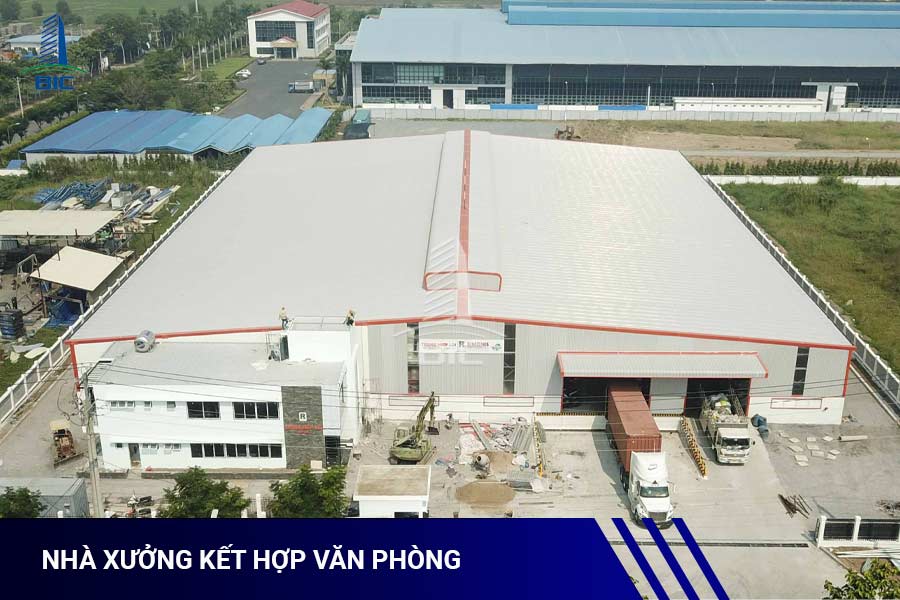
Single-Story Factories, the most common type due to its flexibility, easy expansion, and convenience in production line arrangement. Single-story factories are often applied in industries requiring wide spaces such as cold storage, food processing, or mechanical manufacturing.
Multi-Story Factories (Two Floors or More), an ideal solution when land is limited, especially in crowded industrial parks. Multi-story factories save land, optimize land-use costs, and are suitable for production using lightweight machinery. This model is commonly applied in supporting industries and sectors with minimal environmental impact.
Pre-Built Rental Factories, this solution is widely chosen by small and medium-sized enterprises to save initial investment costs and construction time. With the advantage of being ready for immediate operation, it meets rapid expansion or market-testing needs effectively.
Custom-Built Factories designed for specific industries such as food, cold storage, logistics, or import-export. Businesses can request tailored designs to maximize functionality and ensure specialization. Although initial investment costs are higher, the long-term efficiency is typically superior.
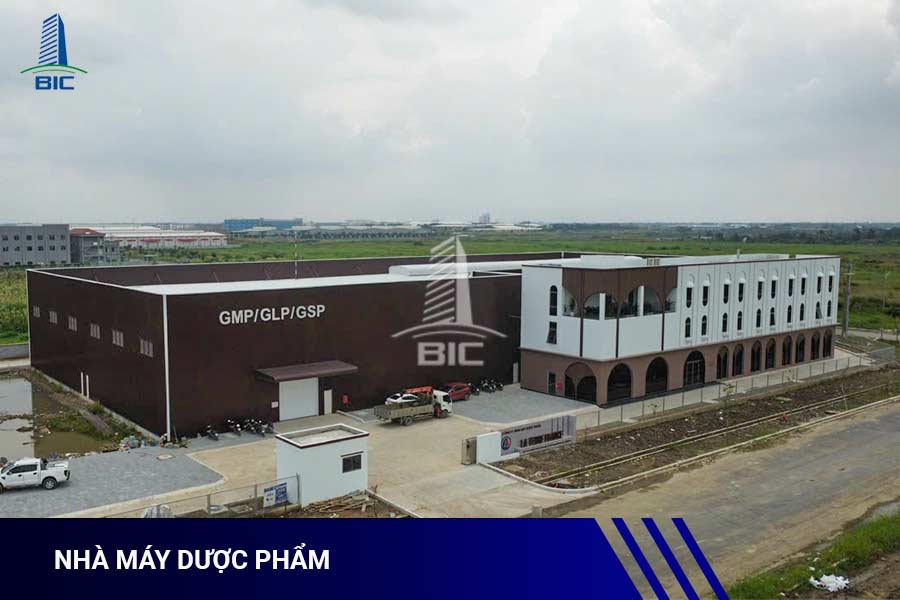
Advantages of Choosing Industrial Factories
Industrial factories are often designed according to standards and use modern materials such as pre-engineered steel or reinforced concrete, significantly shortening construction time. On average, a project can be completed within 3 to 6 months, much faster than other types of real estate. This allows businesses to quickly start operations and seize business opportunities.
Compared to offices, townhouses, or commercial real estate, construction and rental costs for industrial factories are significantly lower. Businesses can choose ready-built rental solutions to reduce capital pressure or custom-built options for long-term operational efficiency. Moreover, many industrial parks offer tax incentives, further reducing costs.
Factories are designed with synchronized technical systems such as lighting, ventilation, fire protection, water supply and drainage, and security. Their structures meet standards for load-bearing, heat resistance, soundproofing, and waterproofing, ensuring a safe and stable production environment.
Another notable advantage is customization. Businesses can choose single-story, multi-story, integrated office, or specialized factories. As production scales change, expansion or design adjustments can be carried out easily, especially with steel-structure factories.
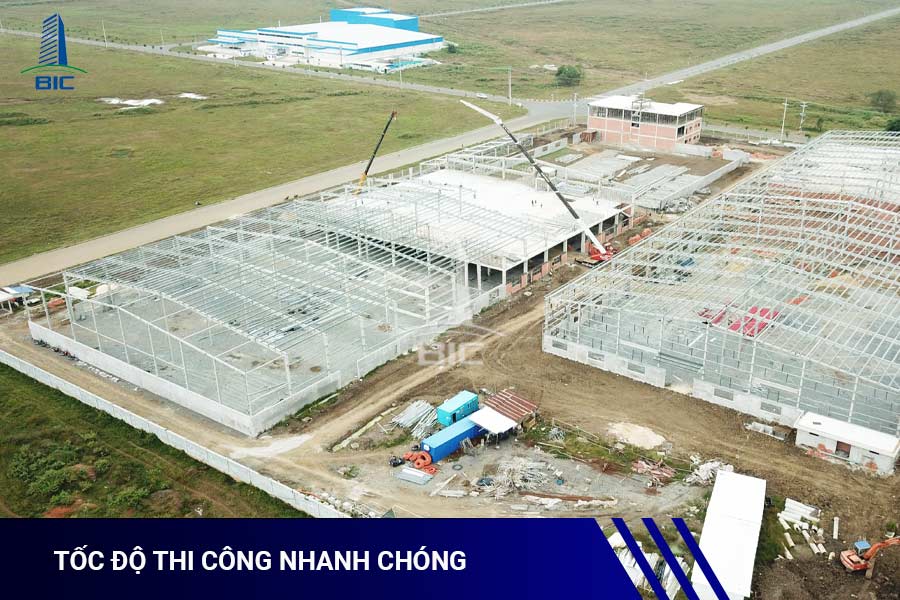
Businesses should determine product type, production scale, and special requirements such as cold storage, automation, or warehousing. Accurately defining needs helps select the right factory type, avoiding wasted space or costly renovations later.
Depending on available land and development plans, businesses can choose between single-story, multi-story, steel, or reinforced concrete factories. For small businesses, renting pre-built factories is a cost-effective solution. For long-term, specialized production, custom-built designs provide more sustainable efficiency.
During the factory design process, a proper balance must be maintained between production areas, storage, and administrative offices. Ventilation, lighting, fire protection, and internal traffic must be integrated for safe and efficient operation. Choosing the right materials not only affects durability but also investment costs and construction time.
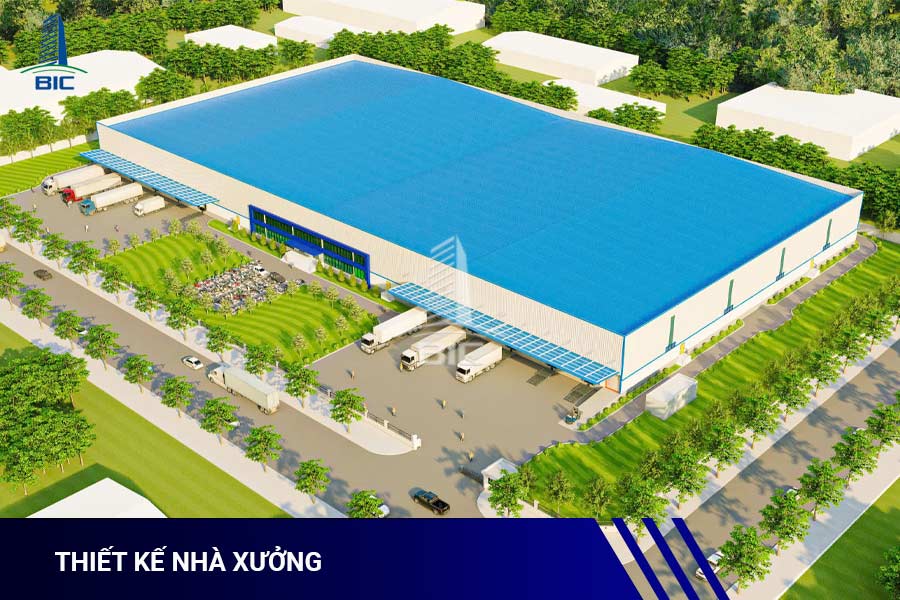
A modern factory design should not only meet current needs but also allow for future expansion. This enables businesses to adapt to market changes and scale up production without incurring the high costs of building new facilities.
Industrial factories play a crucial role in business production and operations. Depending on scale, industry specifics, and development strategy, businesses can select from common factory types each offering unique advantages, from the durability of reinforced concrete factories, the flexibility of steel structures, to cost savings with pre-built rentals or optimized efficiency with custom-built designs.
To fully leverage the benefits of industrial factories, businesses must pay close attention from the design and construction stages, ensuring the facility aligns with production needs while laying the foundation for long-term development. Partnering with BIC for professional factory design and construction will help optimize costs, shorten timelines, and ensure sustainable investment efficiency.